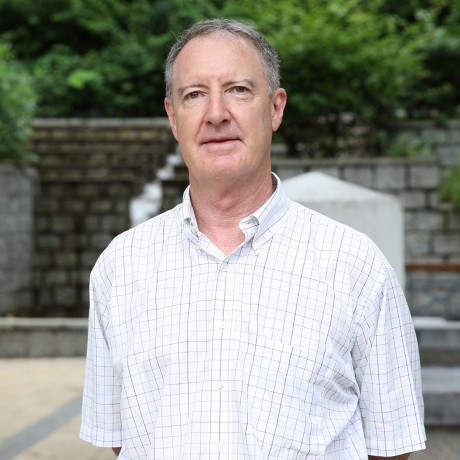
Emeritus Professor, Department of Sociology and Social Policy
Professor David Rosser Phillips
Diagnosis for a healthier world
David R Phillips, Lingnan’s Lam Woo & Co Chair Professor of Social Policy since 1997, occupies a special place in the university’s annals. This is not only because of the tremendous scope and depth of his research work, but also because he co-supervised the first PhD completed at Lingnan, following its relocation to Hong Kong in 1967 and the regaining of its university title in 1998/1999. In total, across the course of his career, Professor Phillips has supervised 43 PhD and MPhil students, and 26 doctoral theses, in universities around the globe.
His own research interests lie in the fields of global health and health care, social gerontology, social epidemiology, and environment and health, and he has worked extensively across Africa as well as Asia.
An African connection
By way of example of the type of the Research Postgraduate programme work he has always been keen to support, Professor Phillips cites his recent supervision of two Ghanaian PhD students, one of whom was a Hong Kong PhD Fellow. The Research Grants Council’s Hong Kong PhD Fellowship Scheme aims to attract talented students from around the world to Hong Kong's universities.
The students’ projects concerned public health and health service provision, as well as issues around the health of older people, in Ghana. “We looked at health literacy, access to health services and health insurance, ageing, and factors that can make it easier, or more difficult, for people to access healthcare and use it effectively,” Professor Phillips explains.
“Our Ghanaian students were very successful in gathering very large datasets, some based on around 5,000 respondents.”
Their findings have provided extremely useful information for those assessing the obstacles to Ghana, and other low- and middle-income countries in sub-Saharan Africa, achieving the universal health coverage (UHC) goals of the World Health Organization (WHO). The global UHC targets were developed when Hong Kong’s Dr Margaret Chan was Director-General of the WHO.
One of the two PhD students is now a research assistant professor in Lingnan’s Asia-Pacific Institute of Ageing Studies (APIAS), while the other is based in Nairobi at the Africa Population Health Research Centre and is working across Africa.
Research degree’s key benefit
Despite having helped numerous PhD and MPhil students under his supervision to achieve publication, Professor Phillips believes the most important thing they gained from their postgraduate studies was the acquisition of the sort of skills that will enable them to conduct effective research, and therefore develop their own ideas, in the future.
While he accepts that it’s wonderful if a research degree project produces significant results, its primary value is as a launchpad for a lifelong career. “A PhD and MPhil should be a research training degree,” he holds.
It is essential, therefore, that students learn how to tackle an issue in a systematic manner. This necessitates the setting up of an appropriate research context and framework, and for the right questions to be asked - because, he points out, if you ask the wrong questions you’ll probably get the wrong answers. “What’s important is the way you approach and analyse the problem, and figure out how to get a handle on it.”
Professor Phillips notes that progress in health-related research or programmes often comes from the work of combinations of individuals or teams who bring different skills and knowledge to the task at hand. What’s more, research that identifies and defines a problem more clearly can be of tremendous value, even if it doesn’t yet point to a solution.
Assessing impact
Professor Phillips has written around 200 papers and chapters and has authored or edited over 15 books and research monographs. His most recent books include Ageing and Place, with editions published in 2005 and 2008, and Global Health, 2012 and 2017. He also established Lingnan’s APIAS over two decades ago, and has been an adviser to many international organisations engaged in the field of health and ageing, especially the WHO and United Nations Economic and Social Commission for Asia and the Pacific.
But, notwithstanding his own track record, he still believes it’s very difficult to pin down the impact of almost any research in his field. “By its very nature, policy research tends not to have a short term impact.”
It is almost impossible to predict what impact particular projects will have somewhere down the road, he points out, and the greatest impact may come at the interface between different research projects conducted by individuals or teams from different countries.

